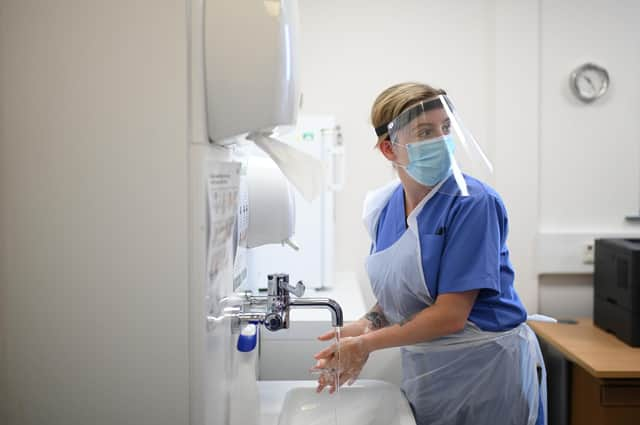7,500 hospital acquired infections cost NHS Scotland £50 million a year, finds study


Researchers at Glasgow Caledonian University University found that one in every hundred hospital patient develops a nosocomial (or hospital acquired) infection.
This is lower than recent studies in wider Europe, at three percent.
Advertisement
Hide AdAdvertisement
Hide AdThe Scottish Government which commissioned the study, welcomed its findings and said they would be used to help prevent infections and improve treatment.
The most common are urinary tract infections, followed by blood stream, lower respiratory tract, gastrointestinal and surgical site infections.
Most of these were caused by E. coli, Staphylococcus aureus and Norovirus, and higher proportions were found in intensive care/high dependency, renal medicine and cardiothoracic surgery.
Professor Jacqui Reilly, Chief Investigator, said: “This study gives Scotland the first comprehensive assessment of the incidence, risks and costs of all types of HAI, enabling annual planning of infection prevention and control (IPC) strategy in our hospitals locally and nationally.
“The research highlights the importance of personalised IPC - risk assessing each patient on admission to mitigate risks of acquiring an infection during the hospital stay, in addition supporting·decisions on which HAI should be focussed nationally in programmes on the basis of incidence and cost, such as bloodstream infections and pneumonia.”
Associate Chief Nursing Officer Irene Barkby said: “We have achieved significant reductions in HAI and this is in part due to improved infection prevention and control processes and good antibiotic prescribing practices in both hospital and community settings.
“The study indicates that HAI incidence is low in Scotland at 1 per cent, but we are not complacent and that is why we will act on this important report.
“The results will help us improve further how we treat HAIs and maximise every opportunity to prevent them – identifying patients most at risk as early as possible and informing work to stop any overuse of antibiotics. As well as protecting patients, reducing HAIs will free up staff resources and reduce waiting times.”
Advertisement
Hide AdAdvertisement
Hide AdHospital acquired infections can be fatal. A report released in May found a Stenotrophomonas infection “probably” related to the environment at Glasgow’s Royal Hospital for Children could have contributed to the death of 10-year-old Milly Main in 2017.
A message from the Editor:
Thank you for reading this article. We're more reliant on your support than ever as the shift in consumer habits brought about by coronavirus impacts our advertisers.
If you haven't already, please consider supporting our trusted, fact-checked journalism by taking out a digital subscription.
Comments
Want to join the conversation? Please or to comment on this article.
